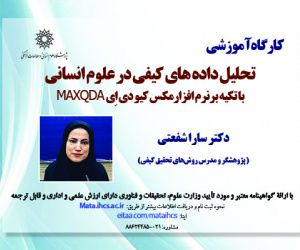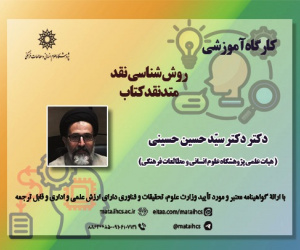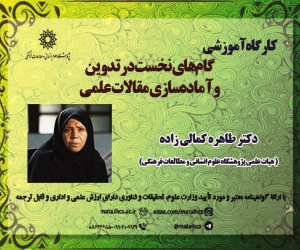تحلیلی بر توسعه مدیریت فرودگاهی با رویکرد توسعه پایدار (مقاله علمی وزارت علوم)
درجه علمی: نشریه علمی (وزارت علوم)
آرشیو
چکیده
هدف: هدف این پژوهش تحلیلی بر توسعه مدیریت فرودگاهی با رویکرد توسعه پایدار بود. روش پژوهش: روش پژوهش ترکیبی اکتشافی دو مرحله ای از نوع ابزارسازی بود. یافته ها: نتایج پژوهش در بخش کیفی نشان داد که شش مقوله چارچوب قانونی، تغییرات اقلیمی و امنیت و ایمنی پرواز ها، تحولات مدیریتی، مدیریت لجستیک فرودگاهی، سیستم یکپارچه مدیریتی، بهینه سازی منابع هستند که می توانند بر مدیریت فرودگاهی با رویکرد توسعه پایدار تأثیر گذارند. همچنین در این پژوهش مدیریت فرودگاهی در بستر مدیریت کلان؛ مکانیزم های نوآورانه مالی، ایجاد ساختار حمایت گری، مشوق های مالی سبز، بهبود عملکرد مالی، تکنولوژی و نوآوری، مدیریت تغییر و فراخوان های اقتصادی، سیاست ها و تنظیمات بین المللی به عنوان عوامل زمینه ای، و دو مقوله نبود زیرساخت مناسب و بی ثباتی اقتصادی به عنوان مقوله های مداخله گر در نظر گرفته شده است. مقوله محوری حاصل از شرایط علّی، جوامع مالی پایدار، امنیت و حفاظت داده، رش د گرایی، حفاظت از تنوع زیستی و پژوهشگر با توجه به مجموعه مفاهیمی که از لا به لای مصاحبه ها و کدهای نهایی استخراج شده، مقوله فرعی را خلق ارزش بلند مدت، عوامل تسهیل کننده موفقیت اقدامات پایدار و ایجاد اعتماد عمومی ذکرکرده است. نتیجه گیری: پیامدهای این پژوهش جهت بهبود مدیریت فرودگاهی با رویکرد توسعه پایدار شامل پیامدهای همسویی با اهداف جهانی، توسعه اقدامات پایدار، بهبود بازده مالی؛ توسعه اقتصاد دایره ای در فردگاه ها و توجه به زیرساخت های شهری است.An analysis on the development of airport management with a sustainable development approach
Objective: The purpose of this research was to analyze the development of airport management with a sustainable development approach.Research Method: The research method was a two-stage exploratory mixed-method tool-making type. In the qualitative part, using the purposive sampling method and theoretical saturation technique, 19 experts in the field of airport management were selected Findings: The results of the qualitative research showed that six categories of legal framework, climate change and flight safety and security, management developments, airport logistics management, integrated management system, and resource optimization can affect airport management with a sustainable development approach. Also, in this research, airport management in the context of macro management; innovative financial mechanisms, creating a supportive structure, green financial incentives, improving financial performance, technology and innovation, change management and economic calls, international policies and regulations are considered as background factors, and two categories of lack of appropriate infrastructure and economic instability are considered as intervening categories. The central category resulting from the causal conditions is sustainable financial societies, data security and protection, growth orientation, biodiversity protection, and the researcher, considering the set of concepts extracted from the interviews and final codes, has mentioned the sub-category of creating long-term value, factors facilitating the success of sustainable measures, and building public trust.Conclusion: The implications of this research for improving airport management with a sustainable development approach include the implications of aligning with global goals, developing sustainable measures, improving financial efficiency; developing a circular economy in individual airports, and paying attention to urban infrastructure.











